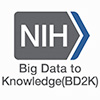 .
.
Clinical and Translational Science Awards (CTSA) program
The CTSA program provides a list of ten competency areas within biomedical informatics for their grant awardees.
-
Competency #1
Utilize informatics-based tools in translational research including:
- a. Locate relevant informatics tools;
- b. Select appropriate informatics tools;
- c. Use those tools in research for managing and analyzing biomedical and health information
Learning Content Recommendations:
- BDK10 - Information Retrieval
- BDK13 - Data and tools landscape
- BDK28 - Translating the Question
-
Competency #2
Describe the essential functions of the major clinical systems (eg, the EHR and its feeder systems, such as radiology and lab) that are relevant to CTS and the challenges to using these data for research
Learning Content Recommendations:
-
Competency #3
Describe the essential functions of major research computer systems (eg, clinical trials management systems, biospecimen management systems, research grant and finance management systems, and research services tracking systems) that are relevant to clinical and translational science (CTS)
Learning Content Recommendations:
- BDK13 - Data and tools landscape
-
Competency #4
Compare and contrast the organizational roles and principal responsibilities essential for access, management, and governance of data related to clinical and translational science (CTS)
Learning Content Recommendations:
-
Competency #5
Explain the role that health information technology standards have on the interoperability of research, clinical, and administrative information systems and on secondary use of data for clinical and translational science (CTS)
Learning Content Recommendations:
-
Competency #6
Identify, retrieve, and manage biomedical and health science knowledge through literature searches using advanced search techniques (PubMed, Google Scholar, MeSH etc.)
Learning Content Recommendations:
-
Competency #7
Describe the essential information management, analysis, transformation, summarization, and visualization methods that apply to clinical and translational science (CTS) data, such as:
- a. Genomic, proteomic and other omic data
- b. Clinical data
- c. Imaging data
- d. Consumer and patient-reported data
- e. Population level data and environmental exposure data
Learning Content Recommendations:
- BDK06 - Public Health and Big Data (for a. and b.)
- BDK18 - Visualization and Interpretation (for visualization methods and considerations)
-
Competency #8
Illustrate the nature of the contributions in consulting and/or collaborating with biomedical and health informatics throughout the life cycle of individual clinical and translational research projects:
- a. Use the terminology and principles of biomedical informatics to interact effectively with informaticians;
- b. Discriminate among the different subdomains of biomedical informatics in order to identify the appropriate informatics consultant or collaborator;
- c. Enumerate the roles of biomedical informatics specialists in the design, development, and implementation of translational research projects
Learning Content Recommendations:
- Outside Resource (for a. and b.)
- BDK01 - Biomedical Big Data Science
-
Competency #9
Discuss the fundamental principles and practices that address the ethical, legal, privacy, social, and security implications of biomedical and health informatics
Learning Content Recommendations:
-
Competency #10
Identify how structure and organization of information in a domain can impact researchers' translational research foci through:
- a. Fundamental data categories and elements
- b. Terminologies and taxonomies
- c. Ontologies
Learning Content Recommendations:
-
Competency #11
Describe and make use of best practices for developing research instruments and protocols and for communicating results of research that are appropriate to specific audiences and special populations, addressing:
- a. Literacy and numeracy;
- b. Cultural attitudes; and
- c. Special terminologies.
Learning Content Recommendations:
- BDK07 - Team Science
- BDK28 - Translating the Question
- BDK21 - Hosting data dissemination and data stewardship workshops

